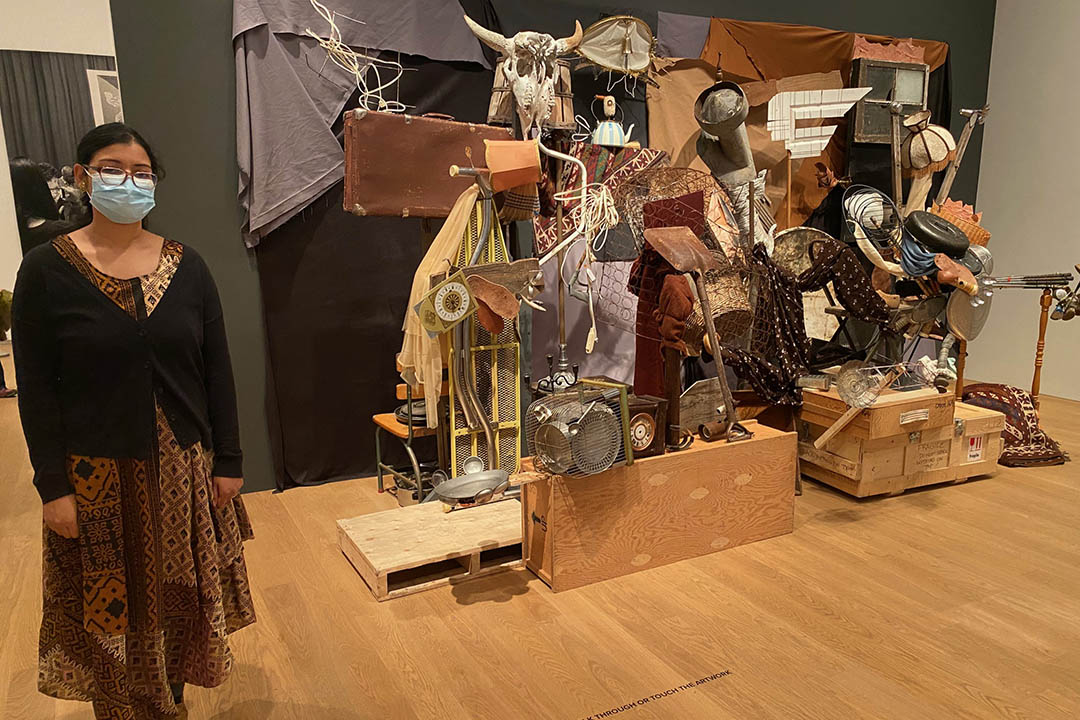
Experience Counts! USask set to advance experiential learning opportunities for students
Faculty, students, and employer and industry representatives came together for the annual University of Saskatchewan (USask) Experiential Learning Employer Symposium, hosted by Career Services, to find more ways to collaborate so that all USask students can graduate with some form of experiential learning.
By Darla ReadThe symposium on May 9 included an explanation and update on the number of USask students who have participated in experiential learning, as well as success stories like Basu’s, and then breakout sessions targeting employers in various stages of implementing experiential learning opportunities in their workplace.
The experiential learning experience of Basu, a fourth-year USask Bachelor of Fine Arts student artist who specializes in found object sculptures, was shared by video presentation.
Symposium delegates heard how Basu, along with four other students, assisted in building a sculpture by Adad Hannah as part of Guernica Remastered a new exhibition at the museum in which contemporary artists created works inspired by Pablo Picasso’s famous 1937 painting Guernica.Remai Modern museum in which contemporary artists created works inspired by Pablo Picasso’s famous 1937 painting Guernica.
The group used everyday objects and materials from local antique and thrift shops, as well as industrial supply stores to build a unique three-dimensional, life-sized representation of the painting.
“It was a version of the painting that could only have been made in Saskatchewan,” noted Basu, who said working on the project helped her develop competencies in teamwork, equity and inclusion, and critical thinking, and allowed her to see the bigger picture of artistic practice.
“Working with few disagreements, showcasing critical thinking, and supporting equity and diversity was a great experience.”
Increasing the number of students who graduate with experiential learning opportunities such as Basu’s is an institutional priority, and the number of students graduating with experiential learning has increased.
Jersey Dean will be one of those students. She reflected on her experiential learning opportunity at the symposium.
“Extending my degree won’t set me back. It will set me apart in a unique way for future employers,” she said.
Since 2016, the university has had a 25 per cent increase in the number of students graduating with at least one experiential learning opportunity. In addition to setting the goal of every graduate having at least one of those experiences, a goal is to have students graduate with multiple placements, according to Nancy Turner, senior director, Teaching and Learning Enhancement.
“Experiential learning is central to enabling our students to learn how to do something well enough to be successful applying it in community and workplace circumstances,” said Turner. “And this helps us contribute to growing a skilled labour force and enabling students to graduate with competencies that really matter to our communities and employers.”
The partnership of employers, community organizations, and industry is critical to creating successful experiential learning initiatives.
One of those partnerships is with RBC. So far, six USask students have been hired through the RBC Learn to Work program.
“We want to see young people break the quiet crisis where there are no jobs because they have no experience, and they have no experience because they don’t have a job,” Cari-Lynne Pine, senior campus recruiter with RBC, told participants at the symposium.
Delegates also heard from Danielle Laing, account manager, academic partnerships at Riipen.
She explained how her company’s virtual project-based learning platform enables companies to collaborate with universities and colleges to gain fresh insights, find and recruit talent, and increase brand awareness through work-based learning.
Whether an employer wants to redesign their website, research the competitive landscape, or get a review of its human resources manual, they can access Riipen’s platform to match with a student seeking that experience.
“We are a bridge connecting educators and employers,” said Laing.
The employer symposium was the second in a series of targeted experiential learning conversations with key stakeholders in the experiential learning process. A faculty experiential learning symposium was held last year where faculty were invited to consider how experiential learning is defined and approached at USask, think about implications for their course or program, and plan next steps. Coming up in fall, the Career Services team will be hosting a student experiential learning symposium where students will be invited to share their experiences with experiential learning at USask.
If you're an employer interested in learning more about offering an experiential learning opportunity to USask students, visit employers.usask.ca.
Together we will support and inspire students to succeed. We invite you to join by supporting current and future students' needs at USask.

